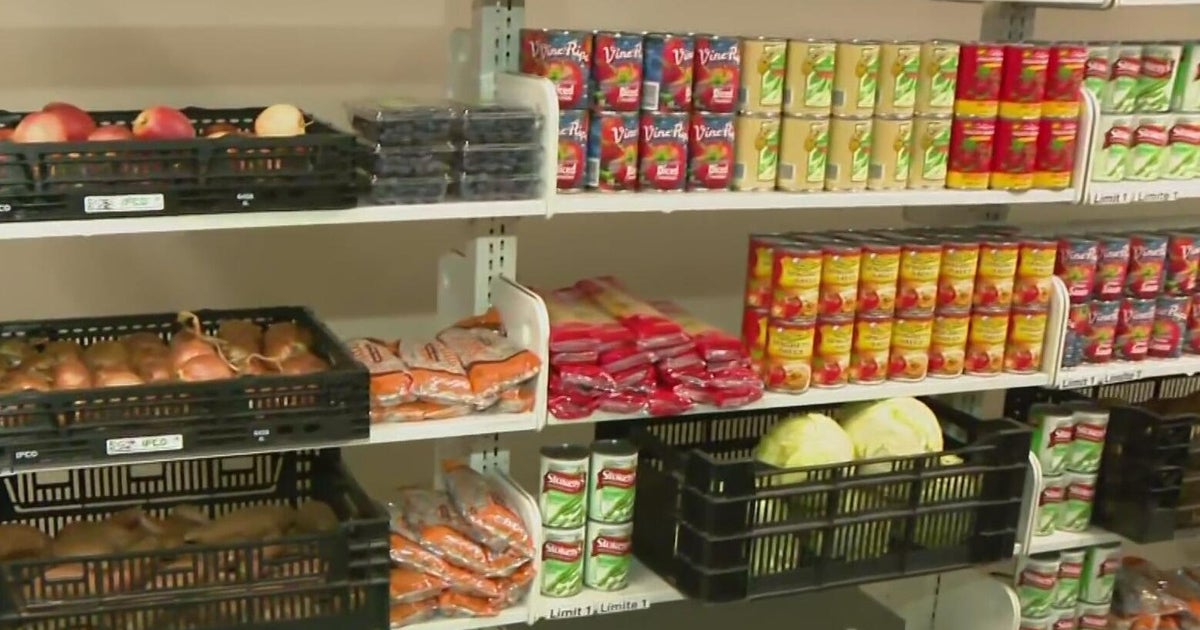ConsumerWatch: Investigation Uncovers 'Superbugs' In Store-Bought Meats
OAKLAND (KPIX 5) - In a recent study, the Environment Working Group discovered that store-bought meat contained antibiotic-resistant bacteria, also known as superbugs, which can cause consumers to become ill.
The EWG's analysis tested store bought meat and found the antibiotic resistant bacteria in 81 percent of raw turkey, 69 percent raw pork chops, 55 percent ground beef and 39 percent are raw chicken parts. EWG researchers found evidence of e-coli and salmonella in the raw meat tested.
Nutritionist Dawn Undurraga of the Environment Working Group said that, "These organisms can cause food borne illnesses and other infections. Worse, they spread antibiotic-resistance, which threatens to bring a post-antibiotic era where important medicines critical to treating people could become ineffective."
Factory farms produce 8.9 billion animals for meat in the US, which makes them the leading cause of the superbug crisis. According to the EWG, these factory animals are given antibiotics to mature faster than the average animal - preparing them for slaughter sooner. Factory animals are also given these antibiotics to prevent infections that are caused by stressful crowded unsanitary living conditions.
The FDA and the Animal Health Institute said that in 2011, pharmaceutical makers sold nearly 30 million pounds of antibiotics for domestic food-producing animals.
Researcher Renee Sharpe of the Environment Working Group said that, "Slowing the spread of the antibiotic resistance will require concerted efforts, not only by the FDA and lawmakers, but by pharmaceutical companies, doctors, veterinarians, livestock producers and big agribusiness."
Health experts are concerned antibiotics could become less effective because of their overuse. CDC has said there is a definitive link between the routine, non-therapeutic uses of antibiotics in food animal production and the crisis of antibiotic resistance in humans. This position is supported by the American Medical Association, the American Academy of Pediatrics, and other leading medical groups who all warn that the injudicious use of antibiotics in food animals presents a serious and growing threat to human health because the practice creates new strains of dangerous antibiotic-resistant bacteria.
For now, the FDA responses to the antibiotics are followed by a voluntary guidance document since there are no laws and regulations to enforce.
The EWG suggests consumers can prevent getting superbugs by eating less factory-farm meat, buying meat raised with out antibiotics, using separate cutting boards for meat and vegetables, and following EWG's Tips to Avoiding Superbugs in Meat.
It's important to note that thoroughly cooking your meat will kill the bacteria.
Meat industry groups say the report failed to mention that the data also shows that drug resistant bacteria in meat are on the decline. They point out that antibiotics in livestock are regulated by the FDA, which also tests to ensure "food at the grocery store does not contain antibiotic residue."
In response to the report the California Poultry Association made he following statement:
Antibiotics used in poultry are generally not used in human medicine, and the most important human class of antibiotics fluoroquinolones is banned in the raising of poultry.
In California antibiotics are not used for growth promotion as alleged in the report.
California poultry products reach the market free of antibiotics because we observe the mandatory withdrawal period; in short California raised poultry, has always been, and continues to be safe to consume, and the industry continues to place the highest level of importance on food safety.
Consumers must remember however, that with raw poultry, they must maintain safe handling and cooking procedures. Any bacteria that may be found in raw poultry is fully eliminated when cooked to the correct temperature.
We encourage consumers to maintain safe handling and cooking procedures. More information is available at www.fightbac.org.
(Copyright 2013 by CBS San Francisco. All Rights Reserved. This material may not be published, broadcast, rewritten, or redistributed.)







